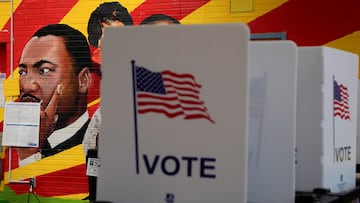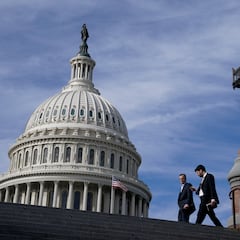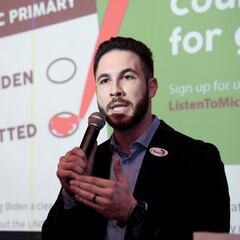What is a protest vote and how does it affect primaries?
An effort in Michigan to send a message to President Biden is claiming victory with better than expect protest vote results garnering over 13%.

Voters in only a handful of states have cast ballots in the US presidential primaries, however, there is little doubt about who will be the nominee for each party. While President Joe Biden and former President Donald Trump are expected to top the Democratic and Republican tickets, respectively, in the November 2024 general elections there are efforts to express discontent with both.
Both candidates handily won their respective party’s primary by large margins of victory in Michigan. But over a quarter of Republican Michiganders cast a vote for Nikki Haley, who has no clear path to the GOP nomination but remains in the race nonetheless. In the case of Biden, organizers in the state encouraged Democratic voters to use the state’s “uncommitted” ballot option to send a message to the President of their frustration over his administration’s handling of the war in Gaza.
What is a protest vote and how does it affect primaries?
As the name suggests, a protest vote expresses dissatisfaction with either the front-runner candidate in the primaries or the two major parties in the general election. In the case of the primaries, this can affect the number of delegates that are awarded and who will select their party’s nominee at their national convention in the summer.
While the Republican primaries divvy up the delegates using three different systems depending on the state: proportional, winner-take-all, and hybrid, the Democrats have a uniform system. If a candidate meets a 15 percent threshold, they are awarded delegates proportionally.
Related stories
Currently, neither front-runner Biden nor Trump are expected to face much of a challenge at obtaining their party’s nomination. In order to secure the GOP nomination the prevailing candidate needs 1,215 of the 2,429 delegates and on the Democratic side 1,969 of the 3,936 delegates.
The “uncommitted” vote in the Democratic primary in Michigan did better than expected on Tuesday garnering over 100,000 votes, or slightly more than 13 percent of the vote. One group of organizers was hoping to get more then 10,000 votes and another was seeking at least 10 percent of the vote. However, the final result missed the threshold to put “uncommitted” delegates on the floor when Democrats meet in August in Chicago.



Complete your personal details to comment